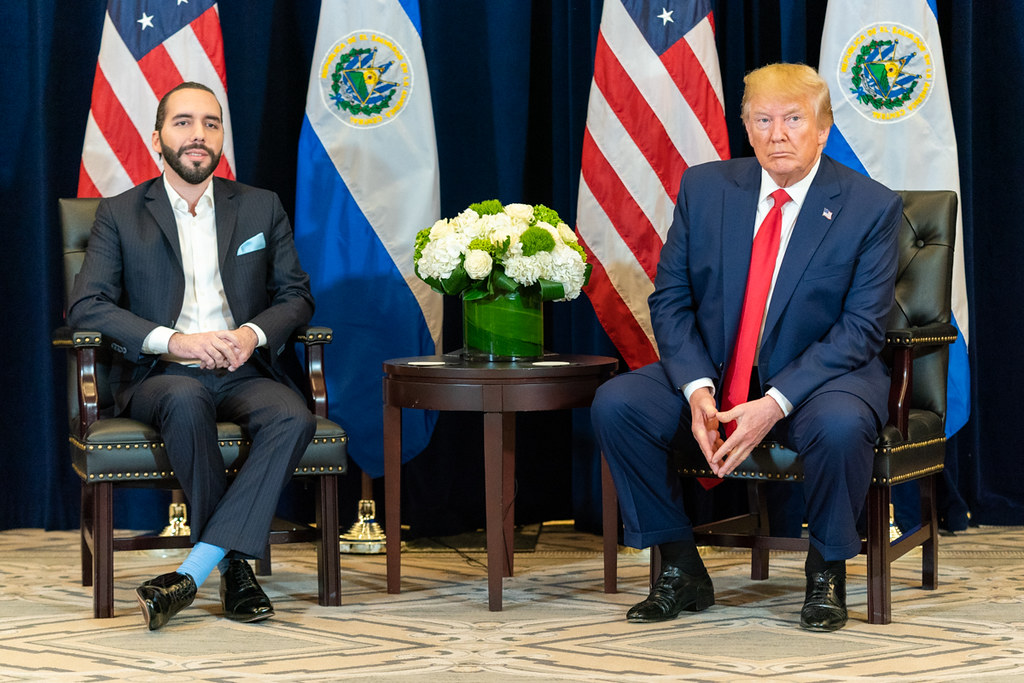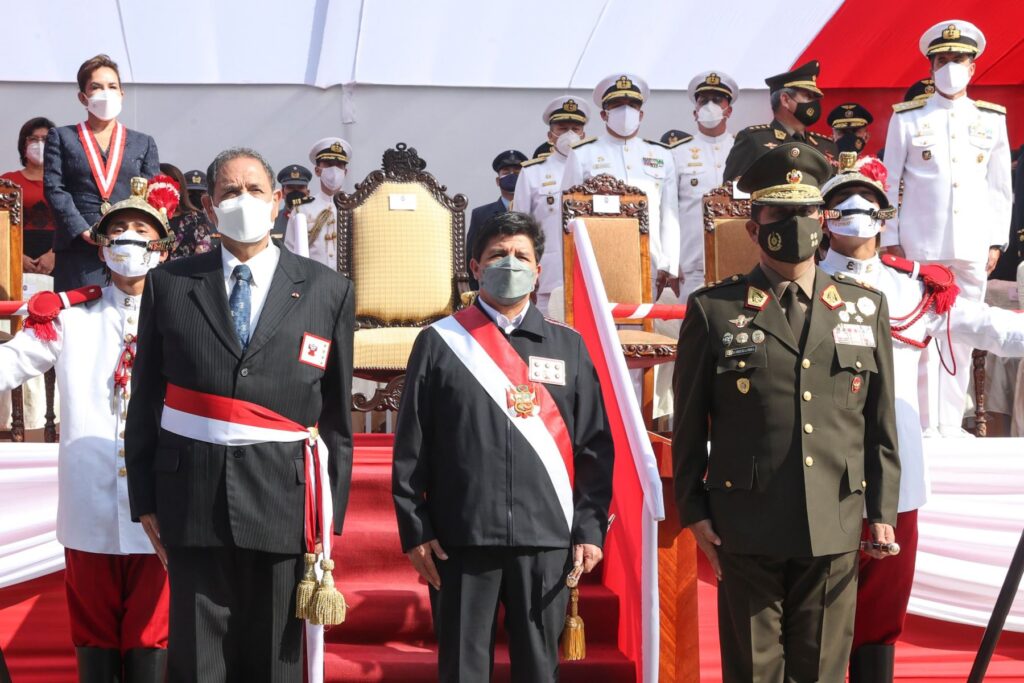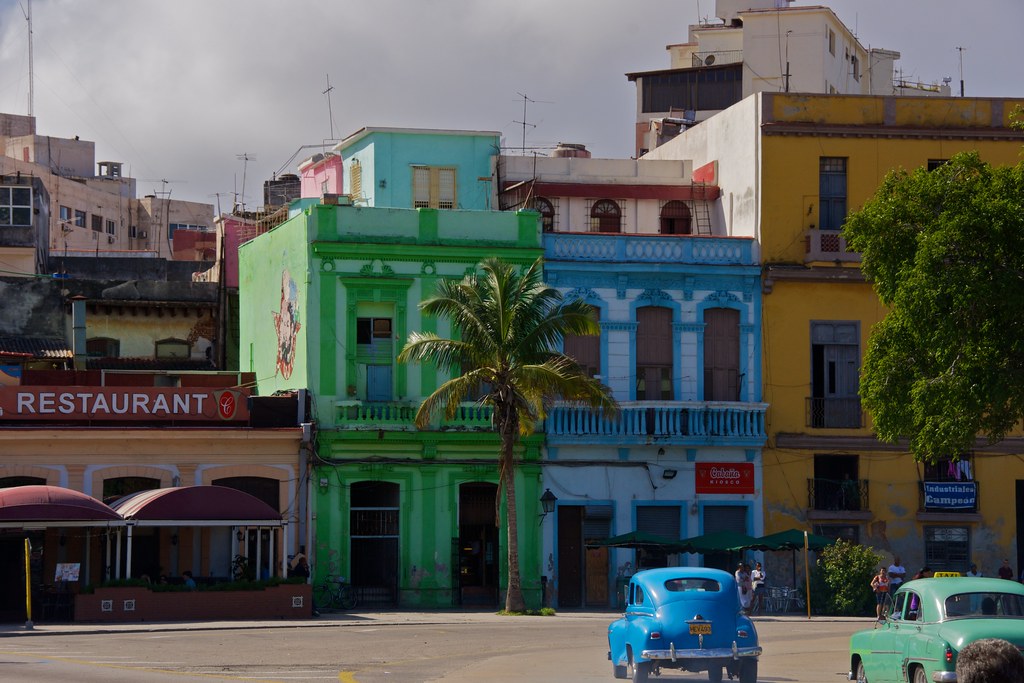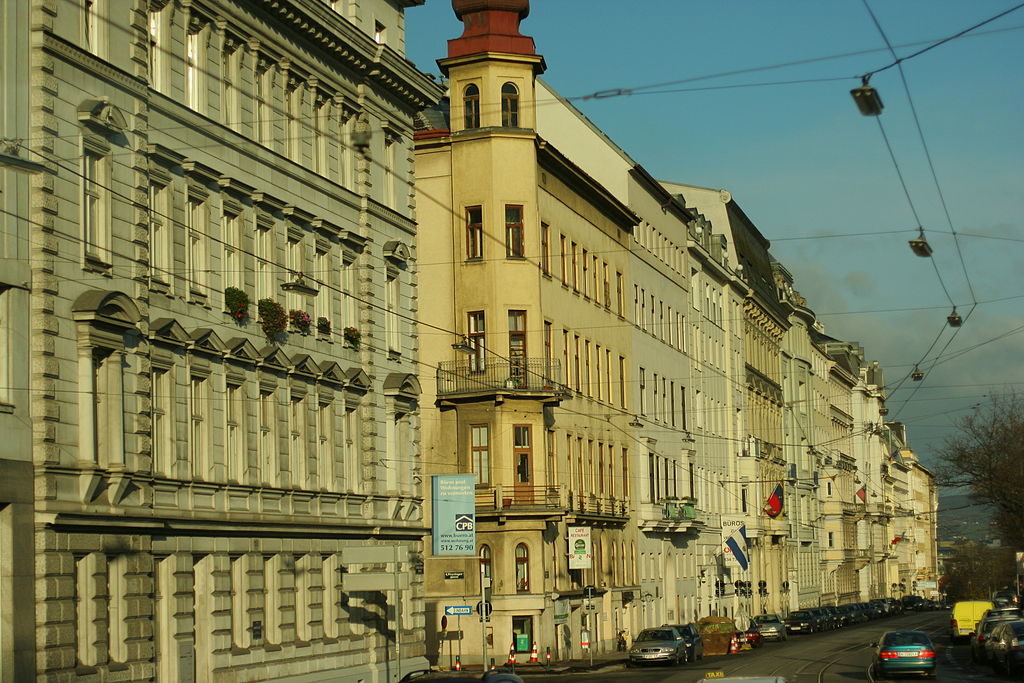El Salvador’s Legislative Assembly, filled with supporters of President Nayib Bukele, recently approved constitutional reforms that would abolish presidential term limits. The move would allow Bukele to run for re-election an indefinite number of times. Marcela Villatoro, a lawmaker for the opposition Republican National Alliance (ARENA), denounced the policy. “Today, democracy has died in El Salvador” she said.
Read more: El Salvador scraps presidential term limits
President Nayib Bukele is, however, unlikely to be concerned with accusations of a hollow commitment to democracy. The Central American politician, who could now feasibly rule El Salvador for life, once branded himself the “world’s coolest dictator”. The phrase, for a time etched onto the bio of his erstwhile Twitter account, was meant in jest, but increasingly rings true.
In recent years, Bukele has significantly raised El Salvador’s international profile. The scale of social transformation driven by Bukele’s policies, as well as the contrast between the administration’s consistently high approval ratings and the raft of human rights abuses alleged to have been committed by Bukele’s government, have drawn intense global media attention.
2025 will mark Bukele’s seventh consecutive year in power, yet time has done little to dampen his popularity. Electoral support for the Salvadoran strongman remains stratospherically high; recent polls estimate his approval rating at 85%. Since being in power, that figure has regularly breached the 90% mark. This popularity is directly related to the palpability of Bukele’s achievements on Salvadoran streets. They are safer now than ever before.
To curb gang-related homicides, Bukele’s government has detained some 75,000 individuals accused of gang activity since declaring a “state of exception” – a policy that significantly expanded the power of the Salvadoran police and military, and has been renewed over 30 times. The detentions show no signs of stopping.
This ‘mano dura’ (iron fist) policy has proven wildly popular at home and helped transform El Salvador into the safest country in the Western Hemisphere as of 2024. The country’s homicide rate fell from 103 per 100,000 inhabitants in 2015 to 1.9 per 100,000 inhabitants in 2023.
As Vera Bergengruen of TIME Magazine notes, “after decades of violence, fear and extortion, citizens can move freely in former gang-controlled ‘red zones’, lounge in parks, and go out at night.”
Read more: El Salvador named one of the world’s safest countries in 2023: At what cost?
However, Bukele’s incarceration programs have attracted widespread criticism from international observers, who allege that the programs allow for various human rights abuses.
Bukele’s detractors cite the lack of due process and poor prison conditions as proof of the authoritarian and unjust nature of his policies. Amnesty International, for example, has criticized the Central American leader for his supposed “evisceration” of human rights in the nation.
Image Source: Daily Mail via X
The instrumentalisation of social media
The use of emergency decrees, programs of mass detention with loose criteria for imprisonment and the crackdown on press freedoms could be considered formative elements of the conventional dictatorial story.
However, it is Bukele’s youthful, crypto-savvy and in-touch style of politics that makes his particular brand of “millennial” authoritarianism so prototypical.
Bukele himself is a proficient social media user. His TikTok account has just under 11 million followers, nearly double the population of El Salvador. On X he has amassed a following of 7.6 million. Through these channels, the Salvadoran President imparts highly doctored and self-serving versions of events.
According to Bergengruen, “TikTok is a large part of the alternative media landscape Bukele has built since his inauguration, tightly controlling and often manipulating the information disseminated”. Alberto Escorcia, a Mexican social media analyst, characterized the scale of Bukele’s manipulation of public opinion via social media as “overwhelming”.
Bukele’s government has also been accused of hiring an ever-burgeoning network of sympathetic social media influencers to counteract negative press towards his administration from mainstream media networks.
This uptick in social media-based, pro-government propaganda has coincided with an increase in cyber abuse directed at opposition journalists and independent media. El Faro, a Salvadoran independent digital news outlet which has accused Bukele of cooperating with criminal groups, has often been the center of these attacks.
“Yesterday, El Faro published an ‘investigation’ of a supposed corruption case from 2020. As ‘evidence’, they showed an invoice that clearly shows the date as the year 2000 and features the logo of Mauricio Funes’s government, which began in 2009 and ended in 2014 […] either they’re blatant liars or incompetent… or both,” Bukele noted on X.
The president’s supporters have been equally vociferous in their online attacks against journalists.
Saraí Alas, a now-independent journalist who has worked for La Prensa Gráfica and Salvadoran newspaper Diario el Mundo, told Latin America Reports that the Bukele administration “has propagated a discourse of hate towards the media and defenders of human rights”.
Female journalists, according to Alas, are disproportionately targeted by this “discourse of hate” as they are consistently attacked for “reasons that have nothing to do with the profession”; they are called “prostitutes” and attacked on the basis of their appearance.
Alas also recognizes that social media plays a key role in the communication of the achievements of the Bukele government; she asserts that the transmission of the Salvadoran leader’s speeches via “networks such as Youtube, Facebook and X” is key to “the machinery of propaganda at Nayib Bukele’s disposal”.
Alas argues that Bukele’s background in marketing informs his administration’s instrumentalization of social media for propaganda purposes: “The administration operates on social media according to the logic of a publicist, one who knows that he needs to project a good image, the best one possible.”
Bukele’s lofty crypto ambitions
Bukele’s avid use and instrumentalization of social media is not the only example of his administration’s amalgamation of digitalisation and autocracy. He has also embraced cryptocurrency, becoming the first world leader to make bitcoin legal tender in 2021.
Read more: El Salvador and Pakistan pledge “strategic collaboration” in Bitcoin field
Although that policy has since been amended so that Salvadoran businesses are no longer obliged to accept bitcoin as payment, Bukele’s crypto ambitions remain bold. The Salvadoran President has promised to create Bitcoin City, a smart city built in the shape of a coin funded by the cryptocurrency and free from all income tax.
Image Source: Nayib Bukele via X
These projects have also been mired in controversy. PEN International, a global network of writers, alleges that “between June 2020 and November 2021, at least 22 members of El Faro were subjected to digital surveillance […] while investigating the use of the Bitcoin cryptocurrency in the country.” PEN has publicly called for an end to the harassment of journalists by the Salvadoran authorities.
Read more: El Salvador journalism association condemns “mass exodus” of reporters
The creation of Bitcoin City has also led to an effective forced displacement of citizens at the hands of the Salvadoran government. Residents of the communities of El Condadillo and Flor de Mangle were reportedly pushed into “predatory” negotiations with the government over the relinquishment of their homes in exchange for “inadequate compensation”.
The residents’ former homes were demolished to make way for the runway of the Aeropuerto del Pacífico, an airport under construction that will ensure easy access to Bitcoin City for international investors and entrepreneurs.
It is precisely this authoritarian commitment to technological modernization and monopoly that makes Bukele a “millenial autocrat”. Where more traditionally autocratic regimes build shrines to the past to instill feelings of popular loyalty towards a particular political, military or religious tradition, Bukele appears to look to the future for ways that he can guarantee the longevity of his power and political legacy in the new digital age.
Featured Image: American President Donald Trump and Salvadoran President Nayib Bukele meet at the White House in 2019
Image Credit: Trump White House Archived via Flickr
License: Creative Commons Licenses











